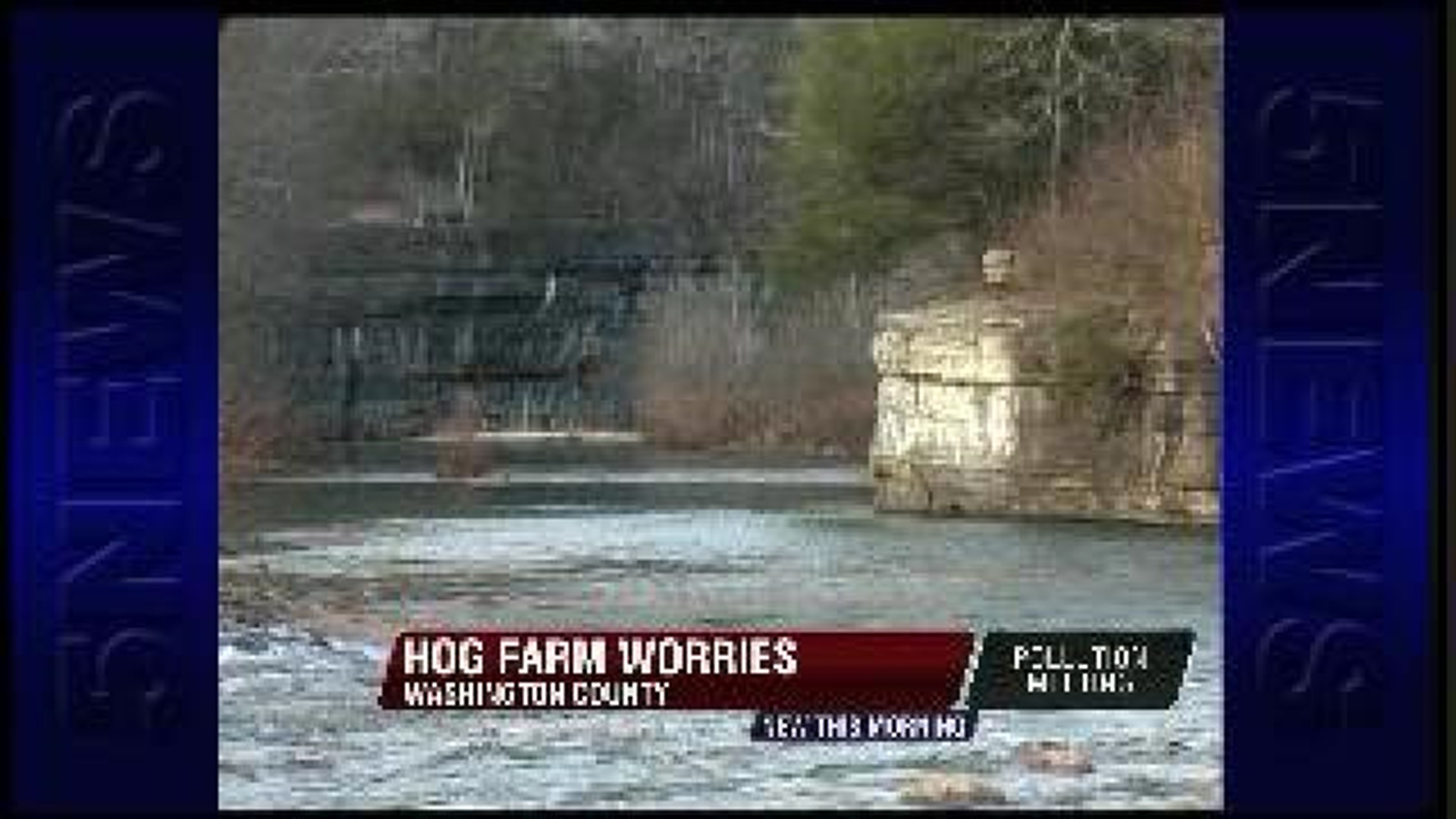Despite hearing from several angry farmers, the Fayetteville City Council passed a resolution Tuesday night opposing a hog farm aldermen say could pollute the Buffalo River and Fayetteville area.
The council voted unanimously to oppose a 6,500-head hog factory farm near Harrison in Newton County. Although the farm is a few counties away, the proposed resolution claims the factory could poison Buffalo River waters and hurt Northwest Arkansas tourism revenue.
Members of the public on both sides of the issue spoke up during the public comment section of Tuesday’s council meeting. Helen Mitchell, a local realtor, said the possibility of pollution and water contamination is obvious and hog farms have decimated the environment of other areas outside of the state.
Alderman Sarah Marsh and Mayor Lioneld Jordan, the resolution’s co-sponsors, said they have heard from several citizens on the matter and realize it is important to them that the council do whatever it can to keep pollutants from hurting the Fayetteville area.
Beau Bishop with the Arkansas Farm Bureau told the council pollution is not likely, adding that the eighth-generation family heading the hog farm operation has taken out $4 million in loans to start the farm.
“This is their livelihood,” Bishop said. “All they’re guilty of is following the letter of the law.”
Alderman Justin Tennant told his fellow council members he did not feel right voting against the hog farm when so many farmers are already struggling to make a living because of increased regulations.
The U.S. Department of Agriculture’s Farm Service Agency found the hog farm would have no significant impact on the local environment and the river, a claim the City Council’s resolution calls “hard to imagine”.
The resolution, drafted by Fayetteville city attorney Kit Williams, states hog droppings have the ability to pollute the river and keep people from canoeing or hiking along the river locally.
“Hog excrement…smells very much worse than chicken or cow manure,” the resolution states. The state of Arkansas “would never allow a city of 6,500 people to just use lagoons that can easily overflow after a storm and flow into the nearby creek to store and ‘treat’ human waste.”
Bishop refuted the resolution, saying hog excrement does not have the same ill effects human excrement can have on the health of those nearby.
The resolution is non-binding and has no force of law.

